|
|
|
|
|
|
|
|
Anchorage Senior Arctic Official Meeting, October 20-22, 2015 (Anchorage, Alaska, USA). The Alaska Dispatch News reports the high-profile, plenary meeting was discussed by the State Department earlier this week by Julia Gourley of the State Department: To guide its 2015-17 chairmanship, she said, the U.S. delegation has settled on three broad goals -- improving Arctic Ocean safety, security and stewardship; improving economic and living conditions for people in the Arctic; and addressing climate change impact in the Arctic. Within those broad goals are numerous and varied programs and projects, some of them carried on from the just-ended Canadian chairmanship and prior years of Arctic Council work, and some introduced by U.S. officials, Gourley said.
Today's Congressional Action:
The House of Representatives and Senate are in session and expected to consider non-Arctic legislation.
|
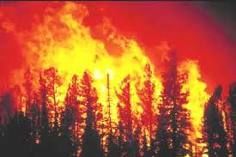 Scientists Confirm Fears That Alaska Wildfires Could Make Global Warming Worse. In not much more than a month, leaders from around the world will assemble in Paris in order to -- hopefully -- find a way to cap the world's greenhouse gas emissions and bring them down to safe levels. But there's a problem. There are some greenhouse gas sources that these leaders can't fully control -- and in some cases, reasons to think that these sources may grow in the future. The point is being driven home this year by raging peat fires in Indonesia, which have already contributed more than a billion tons of carbon dioxide equivalent emissions to the atmosphere -- as much as Japan produces in a year from fossil fuels. And the blazes still appear to be on the rise, meaning that the net contribution this year could ultimately be considerably higher than that. Alaska Dispatch News Scientists Confirm Fears That Alaska Wildfires Could Make Global Warming Worse. In not much more than a month, leaders from around the world will assemble in Paris in order to -- hopefully -- find a way to cap the world's greenhouse gas emissions and bring them down to safe levels. But there's a problem. There are some greenhouse gas sources that these leaders can't fully control -- and in some cases, reasons to think that these sources may grow in the future. The point is being driven home this year by raging peat fires in Indonesia, which have already contributed more than a billion tons of carbon dioxide equivalent emissions to the atmosphere -- as much as Japan produces in a year from fossil fuels. And the blazes still appear to be on the rise, meaning that the net contribution this year could ultimately be considerably higher than that. Alaska Dispatch News
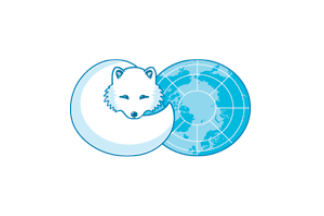 US Pushes Ambitious Goals as Arctic Council Convenes in Anchorage. Just six months into the United States' chairmanship of the Arctic Council, events have "already moved the ball forward enormously" on one of its main Arctic goals, a senior State Department official said Monday. "Our goal is to raise the awareness of the American public about the Arctic while we have this bully pulpit for two years -- to make sure that, as much as we can, people on the street in any part of America in the middle of the country know that we're an Arctic nation, know where Alaska is, understand at least a little bit about why the Arctic matters to everyone," said Senior Arctic Official Julia Gourley, the State Department veteran who represents the U.S. at the eight-nation Arctic Council. Alaska Dispatch News US Pushes Ambitious Goals as Arctic Council Convenes in Anchorage. Just six months into the United States' chairmanship of the Arctic Council, events have "already moved the ball forward enormously" on one of its main Arctic goals, a senior State Department official said Monday. "Our goal is to raise the awareness of the American public about the Arctic while we have this bully pulpit for two years -- to make sure that, as much as we can, people on the street in any part of America in the middle of the country know that we're an Arctic nation, know where Alaska is, understand at least a little bit about why the Arctic matters to everyone," said Senior Arctic Official Julia Gourley, the State Department veteran who represents the U.S. at the eight-nation Arctic Council. Alaska Dispatch News
Arctic Yearbook 2015. The Arctic Yearbook is now online and includes a preface by Fran Ulmer, chair of the US Arctic Research Commission. AY2015 is a collection of 19, double blind peer-reviewed scholarly articles, 16 expert commentaries, and 7 briefing notes. With 68 contributing authors coming from 18 countries, AY2015 is a global project that promotes interdisciplinary knowledge sharing and critical analysis on key issues facing the Arctic, its people, and the world. Arctic Yearbook
Under US Chairmanship, Arctic Council Convenes in Anchorage. The United States has taken the helm of the Arctic Council and the eight-nation body is meeting in Anchorage this week. Nils Andreassen is the executive director of the Institute of the North. The Institute is facilitating the meetings. He says the U.S. has identified several priorities for its chairmanship of the Council. Alaska Public Radio
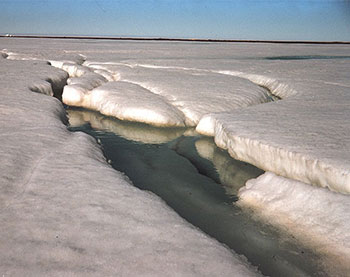 Scientists Discuss Climate Change at the Penn State Symposium on the Arctic. Rural Pennsylvania is both geographically and figuratively distant from the area modern global warming may be hitting the hardest - the Arctic Circle. On Tuesday though, a number of speakers from scientific backgrounds, including those from the National Geospatial-Intelligence Agency , U.S. Department of State and the U.S. Arctic Research Commission , voiced their opinions at the day-long Penn State Symposium on the Arctic at the Lewis Katz Building. The Collegian Scientists Discuss Climate Change at the Penn State Symposium on the Arctic. Rural Pennsylvania is both geographically and figuratively distant from the area modern global warming may be hitting the hardest - the Arctic Circle. On Tuesday though, a number of speakers from scientific backgrounds, including those from the National Geospatial-Intelligence Agency , U.S. Department of State and the U.S. Arctic Research Commission , voiced their opinions at the day-long Penn State Symposium on the Arctic at the Lewis Katz Building. The Collegian
Trading Posts Brought Tuberculosis to Quebec Arctic: Study. Genetic research suggests the arrival of permanent trading posts in Arctic Quebec meant more than easier access to flour and metal cookware for Inuit families. A newly published paper from McGill University concludes that's how tuberculosis was introduced into the region as well. "It would appear that the tuberculosis epidemic dates to permanent interaction with some outside people," said lead author Marcel Behr. CBC News
|
Legislative Action
No Arctic legislation was formally considered yesterday.
|
|
Future Events
The Polar Oceans and Global Climate Change, November 3-6, 2015 (La Jolla, California USA). The American Polar Society will host this Symposium at Scripps Institution of Oceanography. A flyer with a partial list of presenters is available on the Society's website (americanpolar.org) and from the Society's Membership Chairman by email.
Forum for Arctic Modeling and Observational Synthesis Meeting, November 3-6, 2015 (Cape Cod, MA, USA). On November 3rd, the 2015 School for young scientists will consider "Regional Oceanography of the Arctic marginal seas" with lectures covering major features of atmospheric, sea ice and oceanographic regimes of the: Bering, Chukchi, Beaufort, East-Siberian, Laptev Sea, Kara, Barents and Nordic seas. On November 4-6, the meeting portion will summarize project accomplishments for the last 3 years of activities and will focus on the formulation of scientific questions and directions for FAMOS future research (2016-2019) to: (a) improve Arctic modeling, employing very high resolution models; (b) develop and test new arctic monitoring/observing systems and (c) improve predictions of Arctic environmental parameters with reduced uncertainties.
Due North: Next Generation Arctic Research & Leadership, November 5-8, 2015 (Calgary, Alberta, Canada). The Association of Canadian Universities for Northern Studies (ACUNS) will convene an interdisciplinary conference of early career scientists working on Arctic issues. Topics will include: Arctic Communities, Arctic Sustainable Development, Arctic Wildlife, Ecosystem and Biodiversity, Arctic Food Security, Arctic Landscapes, Climate Change and Adaptation, Disaster Risk Management, Policy, Politics and Leadership, Arctic Environment (Data and Techniques), Arctic Resources, and Future of Arctic.
Matchpoints Seminar, November 12-13, 2015 (Aarhus, Denmark). The purpose of the conference is to provide a forum for policy-makers and academics to deliberate on how the security, resilience and sustainability of the globalized Arctic region and its peoples may be enhanced, and what instruments of governance may most suitably contribute. The conference will spell out (1) how the different relevant dimensions of security (military, economic, environmental, energy and human security) manifest themselves in the governing / governance arrangements in the Arctic; (2) how the challenges associated with each manifest themselves, individually and together; and (3) what forms of governing arrangements can best help to address the challenges. The conference will also focus on (4) how the Nordic countries and nations, including Greenland, the Faroe Islands and Aaland Islands, may contribute to the peace, stability and prosperity of the Arctic region through collaborative efforts based on their shared social, human, environmental and democratic values.
** New this week** Arctic Circle Forum (ACF) Singapore, November 12, 2015 (Singapore). The event will be hosted by The Arctic Circle and Singapore Maritime Institute (SMI), with the support of the Singapore Government. The ACF Singapore will be opened by President of Iceland Ólafur Ragner Grímsson and Deputy Prime Minister and Coordinating Minister for National Security of Singapore Teo Chee Hean. Discussions will focus on a range of topics related to Arctic shipping, infrastructure financing, ocean science and research, as well as global collaboration on Arctic affairs. Among the speakers and participants will be Senior Arctic Officials, representatives of major shipping companies, investment funds, and scientific institutes from the United States, Europe, and a number of Asian states.
Arctic Observing Open Science Meeting, November 17-19, 2015 (Seattle, Washington). The Arctic Observing Open Science Meeting will be 2.5 days and held at the Hyatt at Olive 8 in Seattle, Washington. The conference will bring together individuals and teams involved in the collection, processing, analysis, and use of observations in the Arctic - from academia, agencies, industry, and other organizations. The meeting will be convened as a combination of plenary talks, parallel science sessions, and a poster session. The deadline for the Meeting Registration is Tuesday, 20 October. The agenda and registered attendees can be found on the meeting website.
In the Spirit of the Rovaniemi Process 2015, November 24-26, 2015 (Rovaniemi, Lapland, Finland).When the Arctic Environmental Protection Strategy, the so-called Rovaniemi Process, was adopted in 1991, it aimed at overcoming divisions and turning the zone of Cold War military tensions into a region of peace and co-operation. In this joint effort focusing on the protection of environment, and later, sustainable development, the Arctic states supported by indigenous organizations laid grounds for institutionalized collaboration and the emergence of Arctic regional identity. The second international conference will bring together decision-makers, scholars, artists, designers and students to address these questions and discuss the Arctic in global, regional and local perspectives.
Arctic Encounter Paris (AEP 2015), December 11-12, 2015 (Paris, France) (During the UN Convention on Climate Change - COP21). The Arctic Encounter Paris will take place at the French Senate at Luxembourg Palace and the 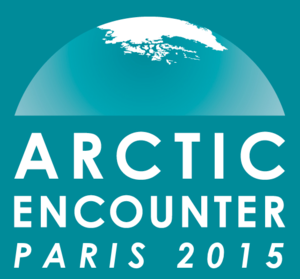 French Military College, École Militaire, in Paris, France, on the final days of the monumental United Nations Convention on Climate Change (COP21) where thousands of global citizens and government delegates will be gathered to deliberate the world's response to our changing planet in Paris. The AEP is the only Arctic policy side event currently planned to take place during the UN Convention. A reception will take place following the closing panel. French Military College, École Militaire, in Paris, France, on the final days of the monumental United Nations Convention on Climate Change (COP21) where thousands of global citizens and government delegates will be gathered to deliberate the world's response to our changing planet in Paris. The AEP is the only Arctic policy side event currently planned to take place during the UN Convention. A reception will take place following the closing panel.
 Fall meeting of the American Geophysical Union, December 14-18, 2015 (San Francisco, California). The 48th meeting of the union brings together nearly 24,000attendees, and lots of Arctic research results. The scientific program is here. There will be several Arctic-related "Town Hall" meetings, including those sponsored by NASA, DOE, NSF, ISAC, IARPC, and SEARCH. Fall meeting of the American Geophysical Union, December 14-18, 2015 (San Francisco, California). The 48th meeting of the union brings together nearly 24,000attendees, and lots of Arctic research results. The scientific program is here. There will be several Arctic-related "Town Hall" meetings, including those sponsored by NASA, DOE, NSF, ISAC, IARPC, and SEARCH.
This symposium is part of an ongoing initiative of the National Academies of Science Polar Research Board to expand public understanding of why the dramatic changes affecting the Arctic region ultimately matter to us all. The agenda features engaging presentations and discussions with top Arctic science and policy experts, and displays and interactive exhibits that illustrate Arctic change and its global impacts. The event is free and open to the public. There are sponsorship opportunities, and a call for exhibitor applications (by Oct.31, 2015). Audience space is limited, so register today; and please encourage your friends, neighbors, and colleagues to participate-as our goal is to reach well beyond the small circle of specialists who typically attend Arctic-themed events in the DC area. The U.S. Arctic Research Commission is helping to sponsor this event.
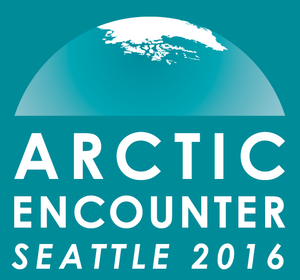 Building upon the preceding Arctic Encounter event in Paris, the third annual Arctic Encounter Symposium (AES) in Seattle, Washington will convene policymakers, industry leaders, and leading experts to confront the leading issues in Arctic policy, innovation, and development. As the largest annual Arctic policy event in the United States, the AES mission is to raise awareness, engage challenges, and develop solutions for the future of a region and a people. The two-day program includes two keynote luncheons, expert plenary sessions, break out sessions, a networking cocktail reception and seated dinner. A closing reception will take place at the conclusion of the program. Building upon the preceding Arctic Encounter event in Paris, the third annual Arctic Encounter Symposium (AES) in Seattle, Washington will convene policymakers, industry leaders, and leading experts to confront the leading issues in Arctic policy, innovation, and development. As the largest annual Arctic policy event in the United States, the AES mission is to raise awareness, engage challenges, and develop solutions for the future of a region and a people. The two-day program includes two keynote luncheons, expert plenary sessions, break out sessions, a networking cocktail reception and seated dinner. A closing reception will take place at the conclusion of the program.
|
|

  
4350 N. Fairfax Drive, Suite 510
Arlington, VA 22203, USA
External links in this publication, and on the USARC's World Wide Web site ( www.arctic.gov) do not constitute endorsement by the US Arctic Research Commission of external Web sites or the information, products or services contained therein. For other than authorized activities, the USARC does not exercise any editorial control over the information you may find at these locations. These links are provided consistent with the stated purpose of this newsletter and the USARC Web site.
|
|
|
|
|
|
|
|
|